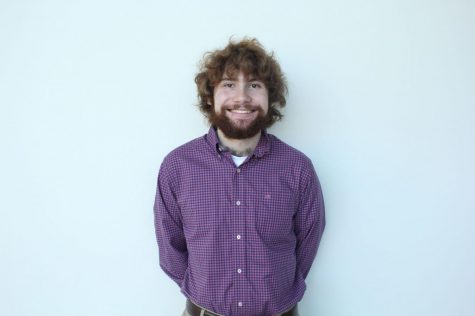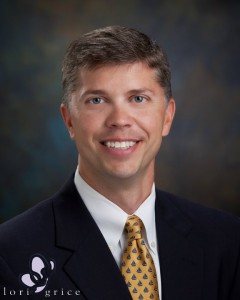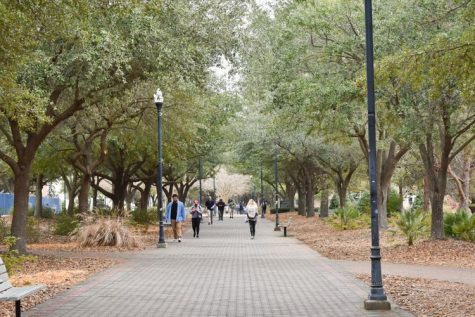During the COVID-19 epidemic, Georgia Southern professors adjust to online teaching
April 17, 2020
STATESBORO — With the threat of the coronavirus spreading, the University System of Georgia made the decision in March to shut down campuses and all in-person classes, making the full jump to online courses for the rest of the semester.
Some Georgia Southern University professors say their students are concerned about the transition, worried they may be unable to complete their coursework with their new situation. The faculty echo this concern themselves, many finding the transition just as difficult.
For some, like Scott Beck, professor in the College of Education’s Department of Middle Grades and Education, the transition was relatively simple, as most of his coursework was already online. Others, like Corrina Zeltsman, assistant professor of history, and Robert Costomiris, associate professor in the College of Arts and Humanities, have found the shift much harder.
“I think faculty and students alike who have had to make this sudden transition have felt a bit disoriented and stressed by it,” Costomiris said. “No one expected this to happen when the term began, and we had already established the patterns associated with face-to-face meetings, testing and discussion.”
In fact, some professors have reported being unaccustomed to fully online courses, finding the new format to be more difficult than they anticipated. With only a few weeks of time for preparation, much of the faculty had little time to prepare, a fact made all the more pressing for those with little experience in online teaching.
Some professors have had to alter or even cut out parts of their coursework to accommodate the transition, removing projects or assignments that had been planned from the beginning of the semester.
“I came into it with a big plan of what I wanted to do and how we were going to keep things normal — like I wanted to have lectures online and us meeting in the same time as class — and then I realized this was totally wrong, this was not going to work,” Julie de Chantal, assistant professor of history, said. “And I think once I realized that the situation was going to be much worse than what we imagine, I came into this with compassion, and I stuck to the basic minimum of what we needed to do to fulfill the objectives at the end of the semester. That’s all we can do at this point.”
Robert Dunham, professor in the Department of Music, has had to bring major renovations to many of his courses that originally required a very hands-on approach. Rather than require in-person performances of each student, his classes now often involve the students evaluating recordings given to them online.
He, however, like many of GS’s faculty and students, miss the day-to-day interactions most of all. With every facet of teaching moving online and the campus closed likely until August or later, the in-person interactions of normal class periods, conferences and office hours are a thing of the past.
“I really enjoy the interactions with the students,” Dunham said. “I still do things, I’m still learning myself, I have a planned schedule that I’ve created, but it’s not the same as having that daily interaction with people where you’re doing what you’re doing together, the back-and-forth kind of aspect — I suppose most people feel that way, but particularly with the kind of things that I do that are really performance based, that interaction is a big deal.”
Some professors have attempted to provide that same level of communication, keeping their eyes and ears open for messages and emails from their students and offering online office hours, but some say have found it hard to maintain for a variety of reasons.
“Not seeing my students and colleagues has been hard,” Zeltsman said. “It’s difficult to tell what’s going on with students and whether they’re getting the support they need when everything goes online.”
Yet, professors are still doing what they can to provide for their students in any way. Some have cut back on due dates, allowing students to take as much time as they need to on assignments. Others have made their assignments easier to access or broken them down into simpler parts. Whatever the case, these professors are doing what they can to help their students and themselves get through the school year and this troubling time.
“It’s not a time for faculty to raise expectations right now,” Beck said. “It’s a time to be realistic: that this is a crisis way beyond any of us has ever lived through before, and we need to make sure that when students finish these courses, they’ve learned the essentials. If we’ve done that, then we’ve done a great job.”
Davis Cobb, The George-Anne News Reporter, gaeditor@georgiasouthern.edu














